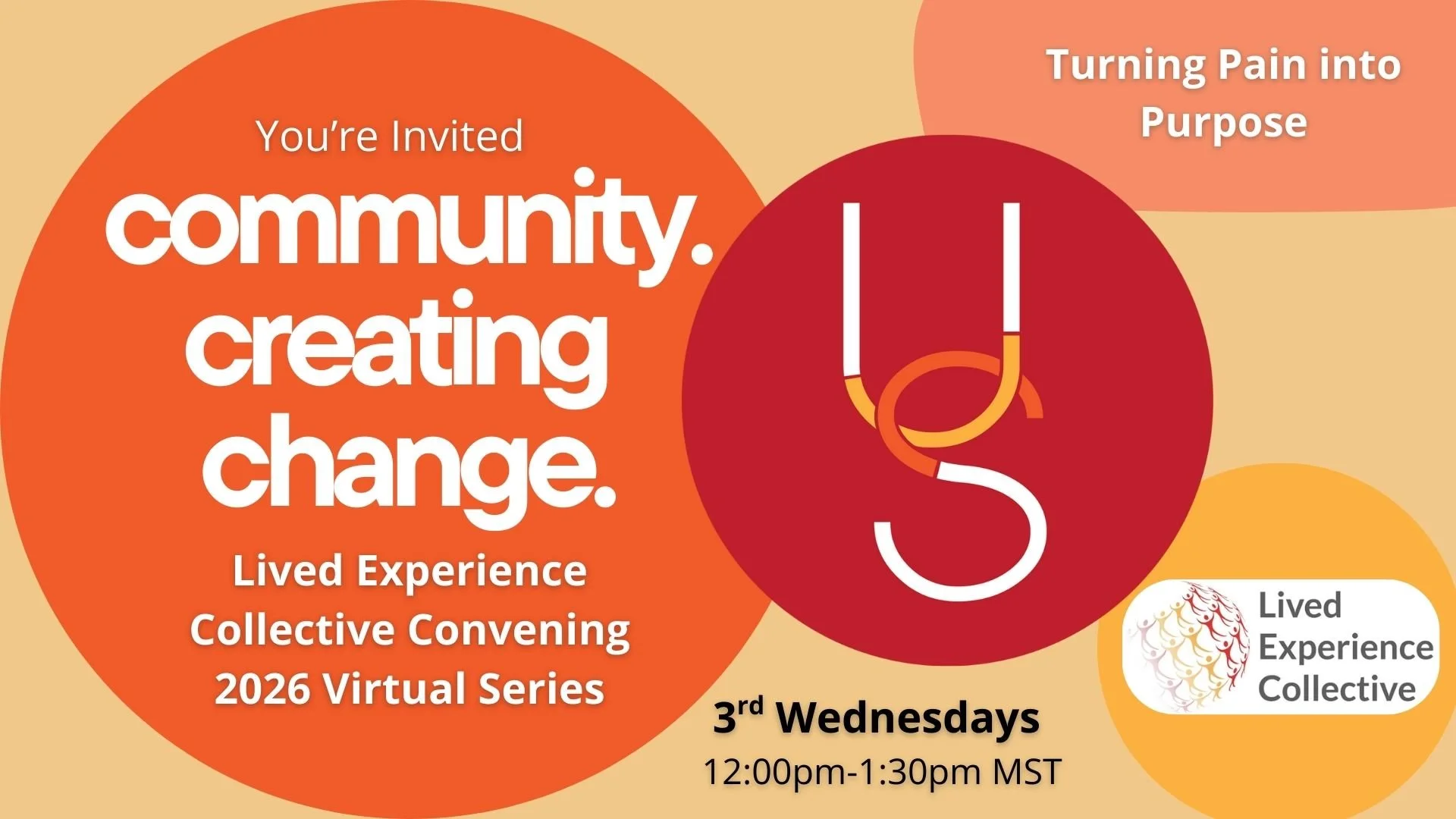Lived Experience Collective Convening
This year, we are excited to launch our new Lived Experience Collective Convening – A virtual convening series held on the 3rd Wednesday of each month from 12:00PM-1:30PM (MST). These convening are specially designed to bring together people with lived experience and their supporters to foster community, collaboration and networking to create change. Each convening includes time for networking and sharing, and a featured interactive presentation with topics focused on self-care, community-building, cultural inclusion, leadership development, advocacy and more. Participation is free. Find out about this month’s featured guest and RSVP in the Lived Experience Collective Community. View the agenda here. Please note, while each convening may last up to 90 minutes, participants are welcome to join late or leave early as needed.


